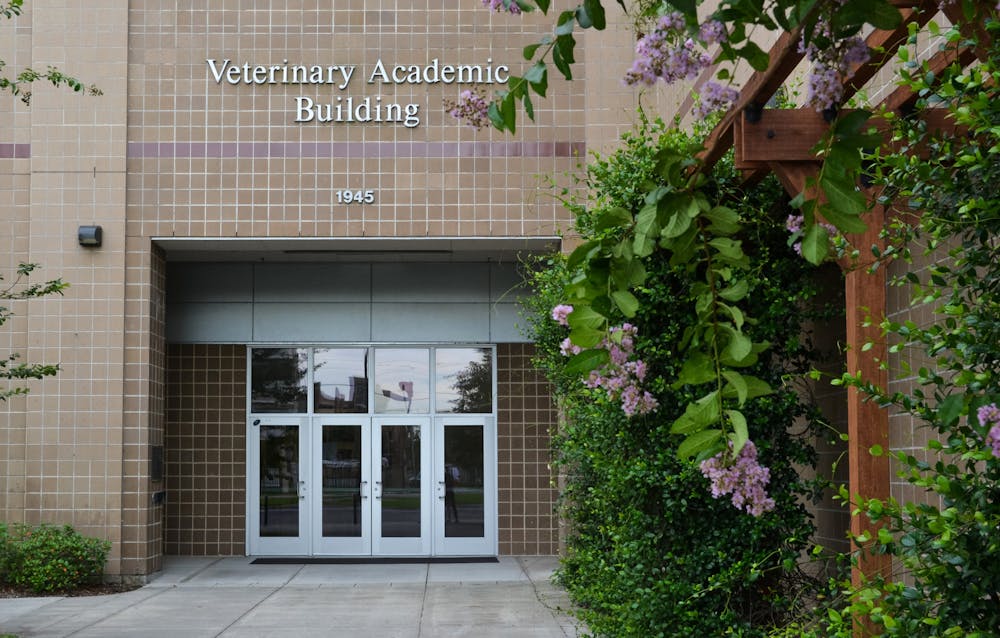National animal rights group Stop Animal Exploitation NOW! sent a letter to UF President Ben Sasse condemning several university animal experiments.
Michael Budkie, executive director of SAEN, first wrote to Sasse May 20, urging him to suspend an experiment after it killed two canine subjects.
“We have discovered several other heinous projects for which UF has admitted significant failures to follow regulations,” Budkie wrote in his letter.
In the group’s latest letter, Budkie cited three non-compliance reports related to animal experiments at UF.
The first report, filed May 2022, described a dosing mistake that led to the death of eight rats.
In preparation for a study, laboratory staff administered meloxicam to the rats, a non-steroidal anti-inflammatory drug typically used to relieve pain in animals.
Laboratory staff mistook the concentration of the drug and gave the subjects five times the approved dose of meloxicam as a result. Eight subjects died or were euthanized due to the dosing mistake and their “advanced age,” according to the report.
“Why did UF staff not simply read the bottle?” Budkie wrote.
The UF Institutional Animal Care and Use Committee declared the incident as a noncompliance with Public Health Services policy May 17, 2022.
The lab adopted measures to prevent further dosage mistakes, such as requiring two staff members to verify prescription drug doses prior to administration, according to the report.
Budkie cited another report revealed unapproved traumatic brain injury procedures performed on a group of mice.
The mice received traumatic brain injury procedures from May 25, 2022, to June 16, 2022.
The mice used in the procedure were originally obtained through an IACUC-approved protocol which allowed them to be temporarily transferred to other projects.
The protocol allowing the temporary transfer of the mice was suspended June 16. From June 16 to June 22, further TBI procedures were performed on additional mice from the original protocol without IACUC approval.
Budkie argued the effects of anesthesia on intracranial pressure and the differences between the skulls of mice and humans invalidated the results of the experiment.
“This experiment would have virtually no scientific utility,” Budkie wrote. “Unless of course, the goal is to treat mice who were anesthetized before receiving a traumatic brain injury.”
The UF IACUC determined the incident violated regulations in July. In response, transfer protocols were eliminated from future TBI procedures.
Data collected from the unapproved TBI procedures was discarded.
The third report cited by Budkie described an experiment where scald burn injuries were inflicted on 24 mice subjects.
Prior to the procedure, the mice received injections of ketamine and xylazine as anesthetics. Laboratory staff administered a toe-pinch test to ensure the effectiveness of the anesthetics.
Additional doses of ketamine and xylazine were administered after two-thirds of the mice responded to the toe-pinch test. The total dosage remained within IACUC-approved limits, according to the report.
After scald burn injuries were applied to the mice, three died before recovering from anesthetics.
Two mice died after they recovered from anesthetics.
The IACUC voted to report the incident to regulatory agencies. Several corrective actions were ordered, including an amendment to replace ketamine and xylazine with isoflurane anesthesia in future protocols.
Budkie argued in his letter the use of animal subjects was unnecessary, citing a study where burn wounds were tested on in vitro human skin cells.
“It is time for the University of Florida to move into cutting-edge science and abandon the barbaric abuses of animals which have violated federal regulations,” Budkie wrote.
UF Spokesperson Cynthia Roldan released a statement assuring the UF Animal Care and Use Program has received full and continued accreditation from the AAALAC International, a nonprofit organization that promotes the humane treatment of animals in science.
“The University of Florida is committed to the ethical use of animals in its pursuit of medical advances that benefit both humans and animals,” Roldan wrote.
Budkie believes UF has yet to live up to this statement.
“If there is any truth to UF’s claims for concern about animals, end these barbaric and unnecessary studies, and terminate your staff who apparently can’t read drug bottles,” Budkie wrote.
This is an ongoing investigation. Check back for updates.
Contact Garrett at gshanley@alligator.org. Follow him on Twitter @garrettshanley.
Garrett Shanley is a fourth-year journalism major and the Spring 2025 university editor for The Alligator. Outside of the newsroom, you can find him watching Wong Kar-Wai movies and talking to his house plants.






